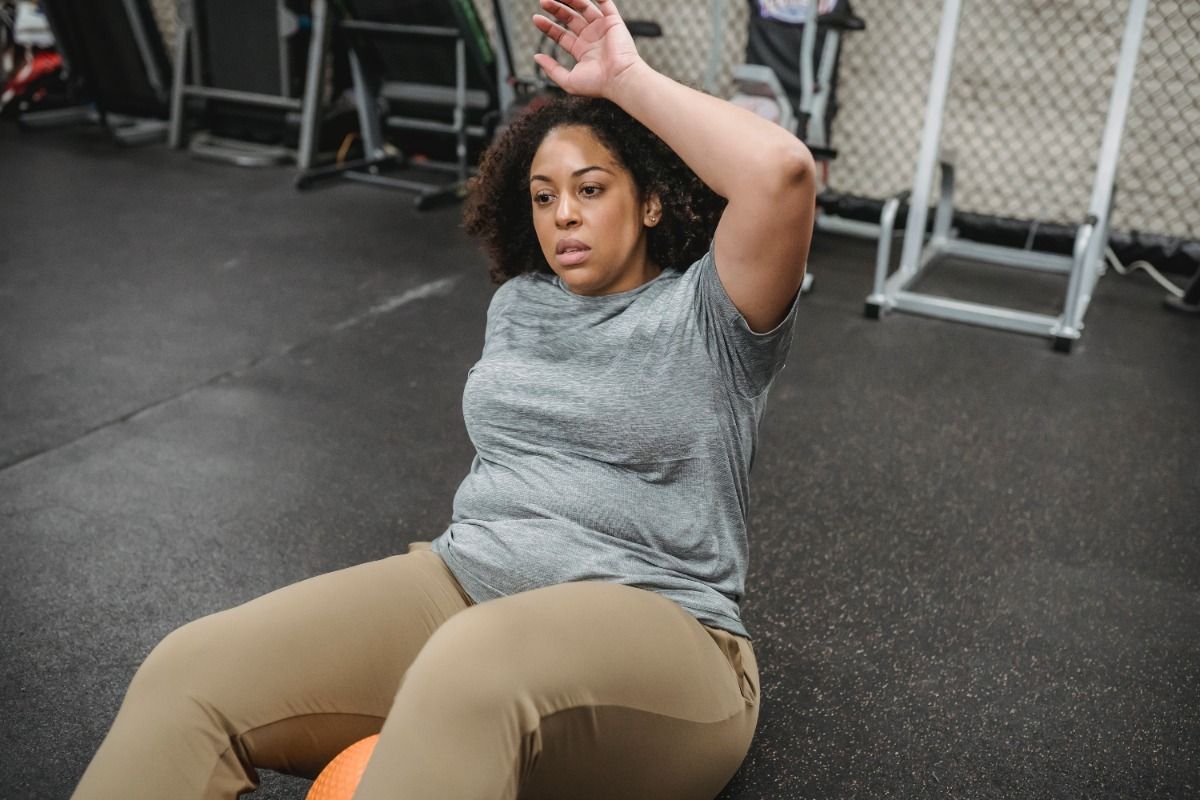
If you’re wondering how to combat fatigue, you’ll first have to figure out what’s causing it. There are several possible causes of chronic fatigue. Nutritional deficiencies such as an iron deficiency can cause fatigue, some medications have side effects that include drowsiness, and mental health conditions such as depression can cause chronic fatigue as well.
It’s possible that underlying health conditions such as diabetes, for example, could be the cause of your fatigue. You could even have a sleep disorder that you’re completely unaware of. Or, it’s possible the reason you feel so tired all the time is because you are too sedentary and you don’t exercise enough. Inactivity or a sedentary lifestyle can cause a wide range of health problems, including chronic fatigue.
Are you physically and mentally drained, and eager to figure out how to combat fatigue? If what’s causing your fatigue is a controllable lifestyle factor such as being too sedentary, it shouldn’t take long for you to master how to combat fatigue. A few lifestyle changes could leave you feeling completely re-energized. Below are some tips on how to combat fatigue:

Exercise
Exercising regularly could give you the energy boost you’re seeking. Although it sounds counterintuitive because you expend energy when you exercise, studies prove that people who engage in regular physical activity feel less tired than those who are inactive or sedentary. Try to do some form of exercise every day, even if it’s just a walk.
Stay Hydrated
Water does more than quench your thirst. By the time you feel thirsty, you are already dehydrated. Remember, your body is made of 75% water, so you need it to ensure optimal function. Fatigue often sets in when your body lacks fluids. Mastering how to combat fatigue could be as simple as drinking more water. Aim for at least 8 glasses of water per day. Juices and sodas don’t count. Drink more than 8 glasses of water per day if you:
- Live in a hot area
- Engage in intense exercise
- Drink alcohol
- Drink caffeine such as coffee, soda, tea, or energy drinks
- Take diuretic medications
Watch your alcohol intake, as alcoholic beverages will make you more dehydrated and fatigued. There are many benefits of a sober lifestyle, and having more energy is certainly one of the perks.
Eat Healthier, Energy-Boosting Foods
There is some truth to the expression, You are what you eat. If you eat nothing but fast food and junk food, you cannot expect your body to perform optimally. Your body uses food as fuel for the day, so making the right choices is imperative. Steer clear from processed food with excessive salt, sugar, fat, and calories. There’s a reason why you feel lethargic and lazy after consuming fast food and other junk treats. These contain more empty calories that make you feel heavy and sluggish. Instead, make a conscious effort to consume more fruits, veggies, whole grains, and lean meat. To help you out, you can do the following:
- Read food and drink labels of the items you regularly consume
- Take out junk food and other tempting treats from your fridge and cupboards
- Make it a habit to do meal preparation so you know what goes in your mouth
- Grow healthy herbs to inspire you to cook healthier meals
Try eating some of these foods known for increasing energy, and limit your consumption of fast food and junk food.
Try Earthing
Studies indicate that earthing or reconnecting with nature can help alleviate both physical and mental stress. If you spend too much time in the office or indoors, zeroing in on nature can help fight exhaustion. You can try the following “grounding” activities:
- Go for a scenic walk in nature
- Ride your bike
- Do gardening
- Play frisbee
- Swim at the beach
- Go for a hike

Improve Your Sleep Hygiene
Lack of sleep or poor sleep results in fatigue, and adversely impacts your overall health. Insufficient sleep can lead to hypertension, heart disease, and diabetes. While you sleep, your body recharges, regenerates cells, and heals itself best – all while you’re in deep slumber. To help you get quality sleep, try enforcing the following sleep hygiene habits:
- Go to bed at the same time each night, and wake up on schedule each morning
- Invest in a good mattress that provides proper lumbar support
- Make sure your bedroom is dark and adequately cool
- Turn of your gadgets at least one hour before bed, as blue light will keep you up longer
- Drink chamomile tea and read a book to wind down
- Diffuse lavender oil which promotes better sleep
- Use sleep music on the ‘Calm’ app
Speak With Your Physician
If you’ve tried everything and you still can’t figure out how to combat fatigue, speak to your doctor. It’s crucial to have proper sleep patterns to combat physical and mental fatigue. Both your mind and body need rest to recover and recharge.
There are many smartphone apps you can download that analyze your sleep habits. If disordered sleeping is the issue, a sleep clinic with a licensed sleep specialist can help you find the answer.
A DNA test from CircleDNA provides you with sleep reports, which help you make sense of the sleep patterns you’re genetically predisposed to. A CircleDNA test will also tell you about your risk of certain health conditions, many of which could be causing your chronic fatigue. Once you understand what’s causing your exhaustion, you’ll be that much closer to solving the problem.







This Post Has One Comment
Comments are closed.